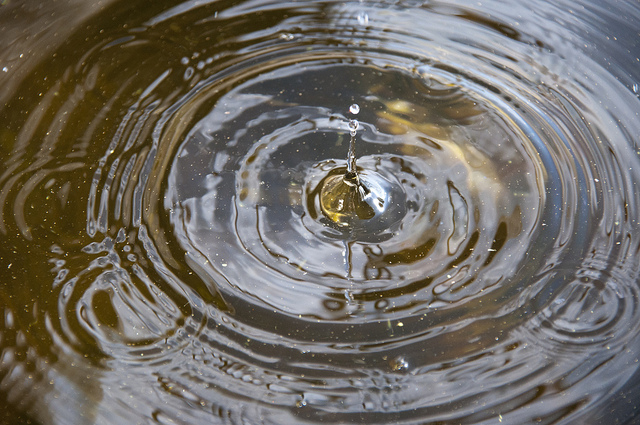
Past, Present, and Future
Many people see monks as historical figures, people out of the past. There is something decidedly Medieval about monks and monasteries. Whether it is wearing habits or the sound of chanting, going to a monastery can feel like a step back in time. Part of it is monastic life stretching back in an unbroken line for hundreds of years.
There is a timeless quality to life in a monastery which seems to defy change. People have been following the same practices for so long in ways rooted in the past.
In contrast, we tend to see leaders reaching into the future. We value leaders who have a vision and plans for what comes next. Leaders inspire us to step into tomorrow. We are drawn to follow leaders who, finding themselves at a turning point, lean into change.
Our assessments of leaders develop over time. We are not able to evaluate the quality of leadership until we have an opportunity to see what happens. Leadership plays out in the context of future events and unforeseen consequences.
At first glance, it may seem impossible to appreciate the idea of monastic leadership. It is a challenge for us to understand how these two could possibly fit together.
Connecting in the Present
The past meets the future in the present. The rich history of monastic life undergirds the present moment. Leadership which will guide us beyond ourselves is rooted in our present circumstances. The intersection of monastic tradition and insightful guidance is in here and now.
We can do nothing to change the past. Only our perceptions, our nostalgia, our regrets, the lessons we take from the past can change now. We cannot change what has already happened, only how we understand our past.
The future, likewise, is beyond our immediate control. Our fears, our fantasies, our hopes and dreams, may never exist in reality. Despite all our best intentions, we are ultimately powerless to determine what will happen next.
The present is all we really have.
The Power of the Present
Many people spend their lives trying to heal the past or fix the future. The primary significance of their efforts is what happens in each present moment.
We say, “There is no time like the present,” and it is literally true. There is actually no time other than the present.
We believe we remember our trip to the Grand Canyon, or Paris, or a movie we saw. The fact is our memories are based entirely on our perceptions rather than what happened. Our minds reinterpret our experiences in light of more recent insights and reflection. Our memories, even of emotionally dramatic events, do not accurately recall what happened.
If our memories are not an accurate account of the past, how could our fantasies predict the future? The truth is the only clear events we have to think about are in the present moment.
The present is a very powerful place. Our experiences and insights in the present change our memories of the past and expectations of the future. The present is the only time we have a say in our perceptive, reflective processes.
How can monastic life and our own leadership help us in the present?
Mindfulness in the Present Moment
The idea of mindfulness is about how we relate to the past, the present, and the future.
Our minds are complicated and function on many levels at the same time. Some of our attention focuses on our past experiences and some on our future expectations. We distract ourselves unintentionally and unconsciously.
Practicing mindfulness is a way to tune out the background noise of our brain activity. It is a way to open ourselves to the present and let go of other considerations.
People use many methods to explore and practice mindfulness. The various methods tend to share an intention to stop or slow down our analytical thinking. We pause our thinking to allow our minds time to reflect and listen.
My mind loves solving problems. The absence of problems to solve makes my analytical mind very anxious. When I try to spend some time being mindful and not solving a problem, my mind sees that as a problem. It kicks into high gear trying to solve the problem of not having a problem to solve. As I intend to quiet down for listening and reflection my mind generates more and more problems to be solved.
Practicing mindfulness relies on methods of reassuring our minds we are not solving problems right now.
Monastic Life and Leadership
Monastic life, though part of a long tradition, is not limited to the past. The monks I know are learning to live in the present moment. They practice mindfulness, openness, and listening in the present. They seek deep, Sacred truth here and now, in the world around them and within themselves.
The leaders who inspire me are not visionaries living with their heads in the clouds. Leadership is about finding steps to take us from where we are to where we want to go. Leaders listen and are open, mindful of each moment. They are aware we must begin in the present to create our future.
Monks and leaders have important lessons to teach each other as they meet in the present. Contemplation and mindfulness are essential elements of discernment and wisdom. Insight and application are crucial aspects of our reflection.
There are no boundaries between past, present, and future. We do not experience the passing of time, but only ever the present moment. Each of us perceives the past and the future in our own present. We are each our own monks and our own leaders.
Our life is like the surface of a pond. No matter how smooth the surface has been or will be, the ripples spread out in the present.
When will you practice mindfulness today?
How do monastic reflection and leadership fit together for you?
[Image by Riebart]
Greg Richardson is a spiritual life mentor and leadership coach in Southern California. He is a recovering attorney and university professor, and a lay Oblate with New Camaldoli Hermitage near Big Sur, California. Greg’s website is StrategicMonk.com, and his email address is [email protected].












